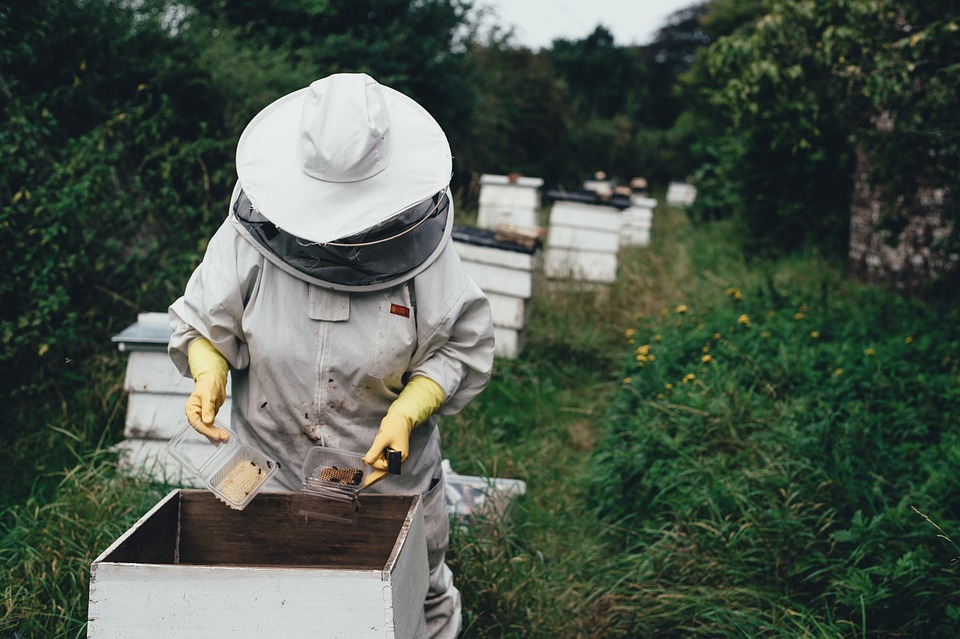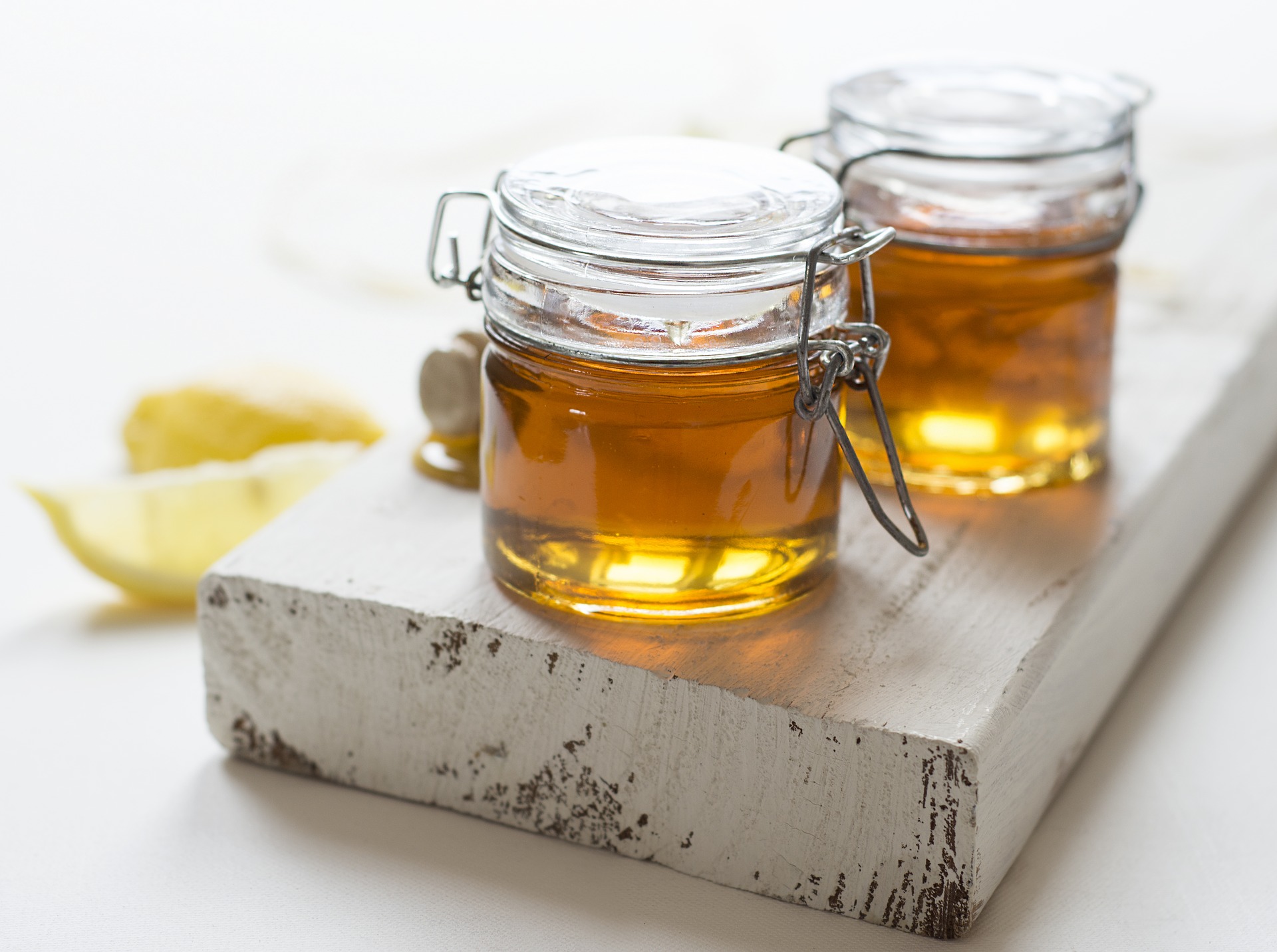Can Vegans Eat Honey?

As individuals are becoming more aware of how food is produced, a large number of the population is adopting a vegan diet. Vegans abstain from all animal products or animal derivatives in their diet, clothing, consumer goods, and lifestyle. The goal is to benefit people, animals, and the environment by avoiding animal-based products and promoting alternatives. Many individuals wonder if vegans eat honey. So can vegans eat honey?
Vegans try to control or reduce all sorts of animal exploitation, including bee exploitation. As a result, most vegans avoid honey in their diets. Some vegans do not have honey in order to protest against beekeeping techniques that are harmful to bee health.
What is Honey?
Bees began producing honey around 130 million years ago, long before humans existed on the planet. Honeybees produce honey in order to survive and feed their young.
They bring nectar from countless flowers back to the colony in their honey stomach, which they then process into sweet and energy-rich honey.
When it is finished and stored in a honeycomb, they will eat from these honey reserves during lean times. Honey is one of the most important food sources for bees. They make it to store food for the winter when there are fewer flowers to collect nectar from.
Bees, including the queen bee, must help their entire colony survive the winter. Moreover, honey contains a lot of sugar, so it is a good source of energy.
People enjoy honey as well, and it has been used as a sweet source of calories and a treat for millennia. Honey is a byproduct that beekeepers who locate their colonies near crops benefit from.
Our supermarkets and kitchen cabinets would be devoid of many foods if commercial honeybees did not pollinate them. Almonds, avocados, and squash are examples of such foods.
Do Vegans Eat Honey?
There are several compelling reasons why you should adopt a vegan lifestyle. There is a genuine and pressing concern that animals are being exploited and abused all over the world.
Knowing and seeing it is traumatic for the majority of us. We also know that the majority of the calories we produce as crops are consumed by livestock rather than humans.
Plants high in energy and protein could aid in the fight against world hunger. Then, producing meat, eggs, and dairy for the masses involves factory farming, cattle yards, habitat destruction, and greenhouse gas emissions.
The Vegan Society defines veganism as a way of life that seeks to exclude, as far as possible and practicable, all forms of exploitation and cruelty to animals for food, clothing, or any other purpose.
A vegan diet does not include honey because honeybees make it as food for themselves, and the vegan society opposes bee exploitation. According to the Vegan Society website, honey is made by bees for bees, and when humans harvest it, their health may be jeopardized.
Importantly, honey harvesting contradicts the Vegan Society’s definition of veganism, which seeks to exclude cruelty and exploitation. The honey in jars is a byproduct of a much larger picture of monoculture agriculture and plant-based food production.
Because of monoculture farming, commercial beekeeping has become an industry. Farmers rely on commercial honeybees to produce the vast majority of the fruits, nuts, legumes, and berries we consume.
In commercial honey production, the queen bee is artificially inseminated, and her wings are removed to prevent her from leaving the hive and colonizing another. Some beekeepers will take all of the honey and sell it for a profit.
Is Beekeeping Unethical?

Honey bees are specifically bred to increase productivity in conventional beekeeping. This selective breeding reduces the gene pool in the population, making it more exposed to disease and large-scale death.
These diseases are then spread to the thousands of other pollinators on which other animals and we rely. On the other hand, most beekeepers do not leave honey for the bees as they should in order to help them survive the winter. Instead, they provide them with sugar water.
Sugar water is a low-cost sugar substitute that lacks the nutrients, fats, and vitamins found in honey. This unethical practice makes the bees work harder to replace the honey that has gone missing.
If beekeepers in very cold areas decide that keeping bees alive in the winter is too costly, they kill the insects with cyanide gas.
Moreover, beekeepers trim the queens’ wings to keep them from leaving the hive and starting a new colony somewhere else, which would reduce productivity and profit. They artificially fertilize the queens with a rape rack, a well-known machine. In a nutshell, they rape them.
When beekeepers remove honey from the hive, many bees are killed or severely injured due to careless handling. The queens mate with 7 -10 drones who die after mating during their lifetime.
There is a distinction between dying after mating while having lived free their entire life and being imprisoned in order to be killed and harvested for sperm. Especially considering how many thousands of kilometers bees normally travel and how many flowers they visit while free.
Hence, these tireless workers do not deserve to be exploited. They have earned the right to be free and keep the honey they worked hard to store.
Is Honey Environmentally Friendly?
Honey is not environmentally friendly. Bees are essential to agriculture and pollination in the wider environment, and the economic benefits they bring as crop pollinators outweigh the value of the honey they produce.
Furthermore, honey bees are generalist pollinators and foragers, visiting a wide range of plant species with varying flower sizes. Other insect species do an excellent job of pollinating. However, they do not provide additional honey and beeswax yields.
Honeybee overpopulation has a negative impact on the populations of other nectar-foraging insects, including other bees. The number of native bumblebees has decreased as a result of the ever-increasing number of farmed bees.
Is Honey Good For You?

Raw honey is high in nutrients, with a relatively healthy balance of sugars, minerals, and antioxidants. It makes it a unique natural remedy with numerous health benefits ranging from heart health to wound healing.
Antioxidants are substances that aid in the fight against disease-causing free radicals, lowering your risk of oxidative cell damage. These compounds are important in both health and disease because they protect against chronic conditions such as heart disease, cancer, and diabetes.
Furthermore, studies show that applying manuka honey directly to diabetic foot ulcers was as effective as standard wound dressings and promoted healing in ulcers.
Phytonutrients are responsible for honey’s antioxidant properties and antibacterial and antifungal properties. Raw honey’s immune-boosting and anticancer qualities are also due to them.
Honey is a cold virus attack. Despite the need for more research and assessment, publications published in 2021 found that honey may be better than current medicines for treating upper respiratory tract infections.
Honey’s antioxidants have been linked to a reduction in high blood pressure. Antioxidants have the potential to have a significant impact on the likelihood of developing heart disease.
Furthermore, honey’s antioxidant and antibacterial properties mean it can aid in the fight against bacteria and viruses. Perhaps the health benefits also push the production of honey despite the environmental impact.
Is Honey Keto?
No, honey is not keto-friendly. It is high in carbs, which are healthy and valid sources of fuel for your body in moderation, whereas the keto diet consists of very little carbs.
The goal of the keto diet is to force your body to use a different type of fuel, rather than relying on sugar derived from carbohydrates like grains, fruits, legumes, and vegetables.
The keto diet is based on ketone bodies, a type of fuel produced by the liver from stored fat. The keto diet typically restricts a dieter to a certain number of carbs per day.
Honey is sweeter and higher in total calories as compared to regular sugar. It has no fat, no dietary fiber, and only a tenth of a gram of protein. Furthermore, as you might have guessed from its nutrition facts, honey is a high-carb food with no place on the keto diet.
Technically, you could stay in ketosis by eating a high-carb food like honey. Consuming large amounts of honey will prevent you from entering ketosis and will reverse your progress.
Is Honey Gluten-Free?
Gluten is a protein present in most wheat products that function as a glue to keep wheat, barley, bulgur, durum, farro, Kamut, rye, and semolina together.
Gluten is naturally present in grains; therefore, it is difficult to remove it. There is no way to make a grain gluten-free if it contains gluten naturally. So is honey gluten-free?
Yes, honey is gluten-free by nature. Nonetheless, gluten-containing ingredients may be present in some specialty flavored honey or honey-based products.
If honey is produced in a facility that also processes gluten-containing foods, it may become cross-contaminated with gluten. Some manufacturers take great care when transitioning from a gluten-containing to a gluten-free product, but others do not.
Food processing equipment is difficult to clean unless the manufacturer completely disassembles it. If you are gluten intolerant, you should carefully read labels before purchasing a new brand of honey.
Common allergens used in food products must be labeled on products in the United States and many other countries. If a gluten-containing product is used, the label should state so.
On the other hand, wind may blow some gluten particles into the honey if the beehives are in an area where gluten grains are growing. If you are extremely gluten sensitive, you should contact local beekeepers who have complete control over the hives and know every detail.
On the other hand, mass-produced honey frequently comes from multiple sources; buying local is safer. If you go to a local beekeeper, they will almost certainly process the honey on their premises.
What Are Vegan Alternatives To Honey?

Honey is a contentious subject in the vegan community, with many debating whether or not sweet nectar is acceptable for vegans.
Although honey is not vegan, there are a plethora of honey substitutes available, many of which are just as delectable as actual honey. Try these vegan honey alternatives!
Agave Nectar
Agave nectar is widely used to sweeten drinks. However, it has a lot of other applications as well. The sweetener, which is derived from the blue agave plant, can be used to replace honey in hot or iced tea, baked products, and other products.
Coconut Nectar
Coconut nectar is a common honey substitute. It has a viscosity comparable to honey and may be used in a 1:1 ratio. The sap from the blooms of the coconut tree is a plant-based sweetener with a naturally sweet and mild flavor, making it quite versatile.
Maple Syrup
Maple syrup is made from boiling maple tree sap and is known for giving a distinct taste to dishes. Furthermore, maple syrup can be used in cereals, different sauces, salad dressings and can also work as a substitute for honey.
On the other hand, there are many vegan substitutes for honey such as agave nectar, barley malt, carob syrup, fructose, maple syrup, organic beet sugar, rice syrup, or sorghum.
Final Thoughts
The topic of honey is surprisingly divisive in the vegan community, yet honey is an animal product and hence not vegan. Honey is the primary source of food for bees.
It is always our responsibility to protect vulnerable species, regardless of whether there is
anything to gain. Bees are a crucial aspect of our ecosystem.
Bees pollinate approximately one-sixth of all flowering plant species worldwide and approximately 400 different types of agricultural plants. A world without bees makes meeting the nutritional needs of our growing population nearly impossible.
Avoiding eating honey may just make a difference. You can show your support for bees by switching to one of the many alternatives, such as agave syrup, maple syrup, or golden syrup. Planting wildflowers is another great way to help your local bee population.











